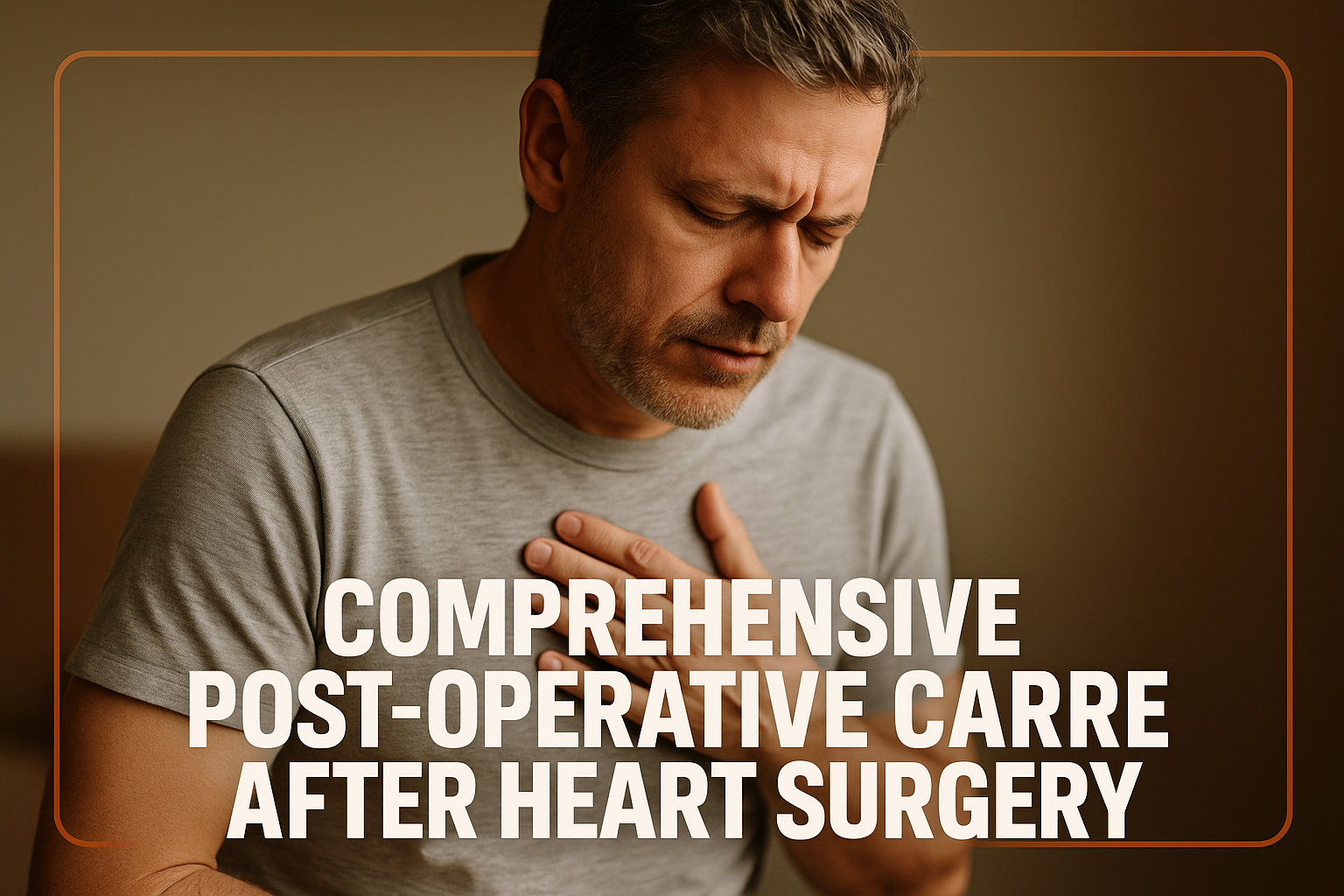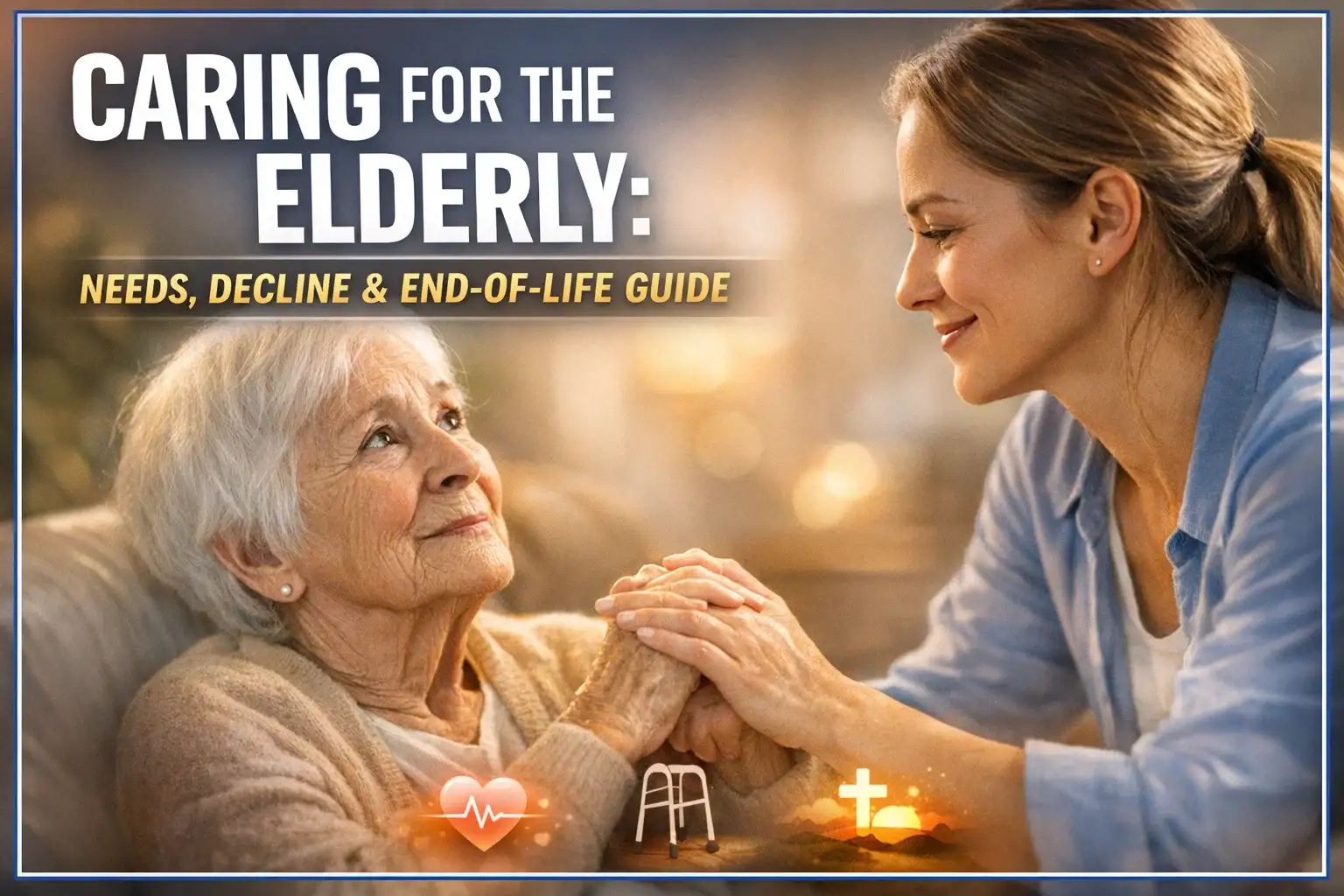Heart surgery is a life-altering process, which may transform the life of the patient and his or her caregivers. Regardless of your surgery e.g. open-
heart surgery, bypass surgery, or like valve replacement, the essence of undergoing such a successful operation depends upon the process of recovery. Under the right care, both physically and emotionally, your loved one will be able to recover his/her inner self to health. It is the only guide you ever need to know about how to take care of someone after heart surgery, whether it is about pain management or offering emotional assistance.
One should know that it might require some time to recover and that the body will need time to rest and be taken care of. In early phases, patients complain of feeling weak, fatigued or even disoriented. All these are normal emotions because the body is responding to the shock caused by surgery. Generally, distribution of recovery will depend on surgical procedure and state of health of the person.
Essential Tips for Post-Surgery Medical Care for Heart Surgery Patients
Pain Management
One of the first things after undergoing heart surgery is the issue of pain management. The incision made around the chest region is likely to be sore, and the patients will feel a bit sore. Healing may be a painful process but caregivers must effectively help in making the pain manageable. The Majority of physicians offer pain relievers to patients to reduce pain although one should be cautious and should remember not to overmedicate the patient or incapacitate the patient to seek greater pain relief.
On the one hand, pain has to be addressed, on the other hand, there is a need to observe any side effects or complications. Be aware of too much pain and sudden pain that seems unusual, since this may signify complications such as an infection. Never exceed the dosage prescribed by the doctor with regard to pain medication.
Medications and Follow-up Appointments
This is the other important element of care after the operation because the patient is supposed to take medication as said. Such drugs can be blood thinners, antibiotics, pain medication and other drugs related to heart. There may be repercussions of missing the dose so it is important to keep up with the medications and to keep a track.
The patient also needs to have follow-up visits with the cardiologist or the surgeon to take note of the progress being made by the patient. These checkups will enable the health care for patient provider to inspect any dose, monitor delays or the progress of healing as expected.
Encourage Movement
Although patients might feel weak at the beginning, one should advise movement slowly as soon as the doctor allows them to do it. It would be beneficial to move and facilitate circulation to avoid the occurrence of blood clots. Nevertheless, exercise must be gradual in order to become intensive; i.e. short active walks are strongly advised at the beginning. It is also not an exercise to excess, but an exercise to strengthen the body. The higher the activity level of the patient is, the quicker the patient will be cured, but the rest should also be given priority.
Help with Daily Activities
Soon after recovery, a patient can be physically exhausted. They can even be in need of assistance in primary activities such as eating, bathing and dressing during early phases of recovery. Through this help, they will not strain so that they recover and they can be able to have some sleep as they recover. The caregivers would be ready to help in such and help to carry out the activities without the assistance of the others as they would recover strength.
Emotional Recovery
Physical recovery is not much more important than the emotional one after the heart surgery. Patients can also feel anxiety, depression or frustration because they have to endure realities of healing process. They can feel emotionally weak, because of the surgical trauma and the fact that the future is quite difficult. This is when the role of the care giver is even more important. One should listen to their fears, comfort them with positive statements and assure them one could recover. Also, they should discuss their feelings, which will make them less anxious and able to cope with these feelings.
Family and Support System
A patient needs a good support system that will enhance his or her mental wellness in the course of recovery. Family members, friends, and caregivers ought to take some time to visit the person, encourage them, and call them regularly. The same support network will not only make the patient feel loved and connected, but will also minimize cases of isolation and loneliness that may arise in the process of recovery. Visiting of loved ones may help to maintain spirits at the desired level and make the patient feel that he or she is not alone on this path.
Balanced Diet for Recovery
Diet is a significant contribution in heart surgery recovery. The body requires a lot of energy, Vitamins and minerals so that it can heal. The body will heal itself by consuming a heart healthy diet that is loaded with lean protein foods, fruits, vegetables, whole grains and healthy fats. Antioxidant and omega-3 fatty acids are essential in foods that curb inflammation; therefore, it is vital the intake of foods like fish, walnuts, and flaxseeds. One has to also restrict high salt and sugar content items and unhealthy fats because they tend to increase the blood pressure and might cause other problems.
Hydration
The other important component of the recovery process is maintaining hydration. Dehydration may also prolong the process of healing and lead to the development of complications, therefore, the patient should be encouraged to consume lots of water. There should be no restriction on intake of fluids, always consult the doctor as it varies with every individual, but it is always advisable to keep the body hydrated so that the natural process of detoxification is thoroughly maintained and to be healthy.
Importance of Sleep
Sleep is also one of the most important recovery aspects. During rest, the body is able to conveniently heal and repair itself, and cardiac surgery patients should sleep more than they are supposed to in order to regenerate and gain strength. We can make the patient have enough comfortable sleeping environment so that the patient gets good sleep. The consistency of sleeping schedule is also encouraged, which allows regulating the natural rhythms of their bodies and speeds up the process of recovery.
Managing Fatigue
After a heart surgery, the person experiences fatigue and can be weak or overtired even after committing simple tasks. You should also ensure that they take plenty of rests and at this initial period of treatment do not strain them too much. Promote short term activities and rest to avoid cases of too much fatigue and give the body time to recover.
Signs of Complications After Heart Surgery: What to Look For and When to Seek Help
Most patients will go through heart surgery and will be able to recover successfully; however, one should be wary of complications. Note the following:
- Excessive bleeding from the incision site
- Bleeding of excessive amount at the incision site
- Dyspnea or chronic chest pains
- Fever, redness, warmth or swelling near the place of incision
- Swelling of the legs or abdomen that normally is unusual indicating fluid accumulation or heart-related problems
- Syncope or fainting can be a sign of a health problem with the blood pressure or the rhythm of the heart
In case of the occurrence of any of the following symptoms, consult a physician. It is possible to prevent serious problems and accelerate the recovery rate through the early detection of complications.
Conclusion
The critical operation of heart surgery incorporates the post operation care of any individual and the following are some of the procedures necessitated. By approaching it well, you can actually make sure that your loved one is able to recover comfortably and in an efficient way. Remember, the other aspects of a successful recovery are proper sleep, promotion of walks, control of complications, and emotional support.
We believe that being caring and knowledgeable is very crucial in offering care to persons recovering after heart surgery at our Precious Pearls Health Home Care. If you want to have a heart surgery survivor take care of reliably and professionally, contact us today.
FAQs
1. How long will it take for someone to recover from heart surgery?
The healing process usually takes around 8 weeks to be done after the initial process, although it may take months before the patient can fully recover depending on the health status and the nature of the surgery performed.
2. Can someone sleep after heart surgery?
Adequate sleep is indeed important in the recovery process. Sleep heals the body and rejuvenates it and hence ensure that the patient gets enough sleep.
3. What are the signs of complications after heart surgery?
Watch out with such symptoms as excessive bleeding, chest pain, shortness of breath, fever, or strange swelling. In case of any of these happenings, go to a doctor as soon as possible.






